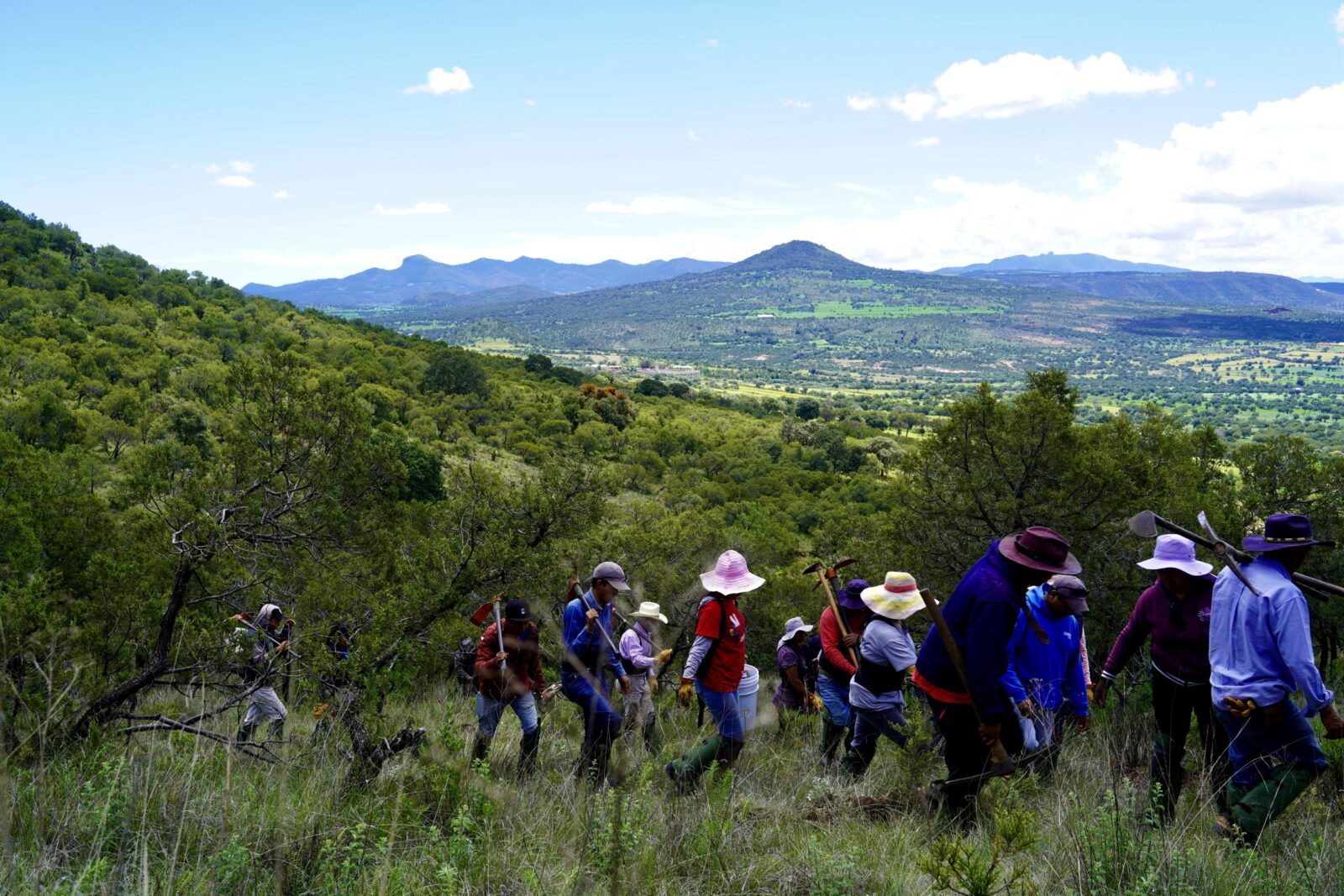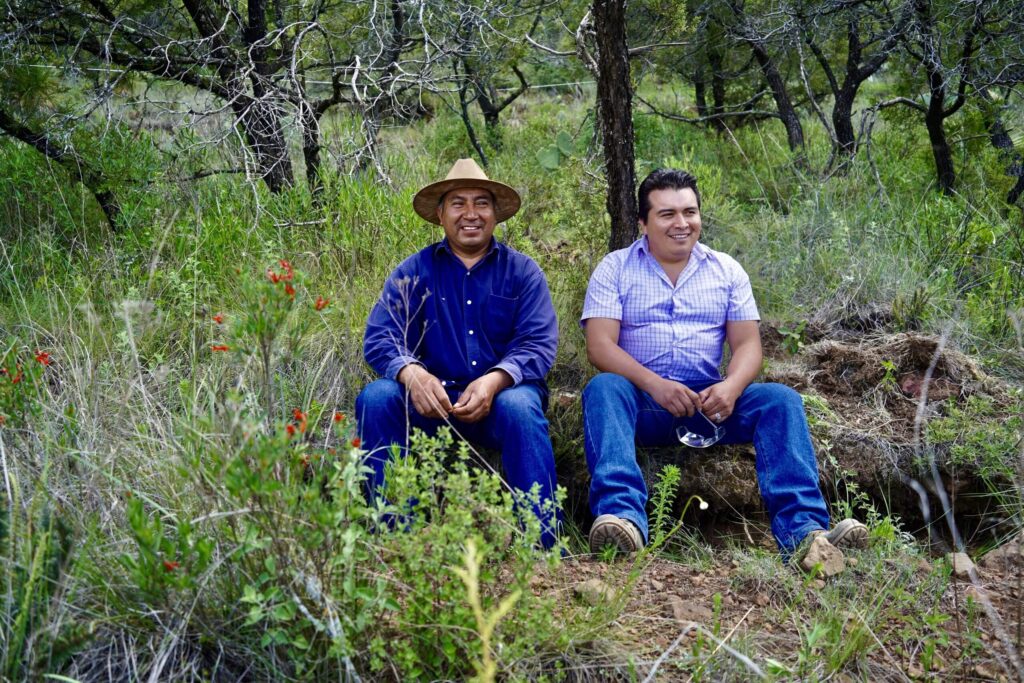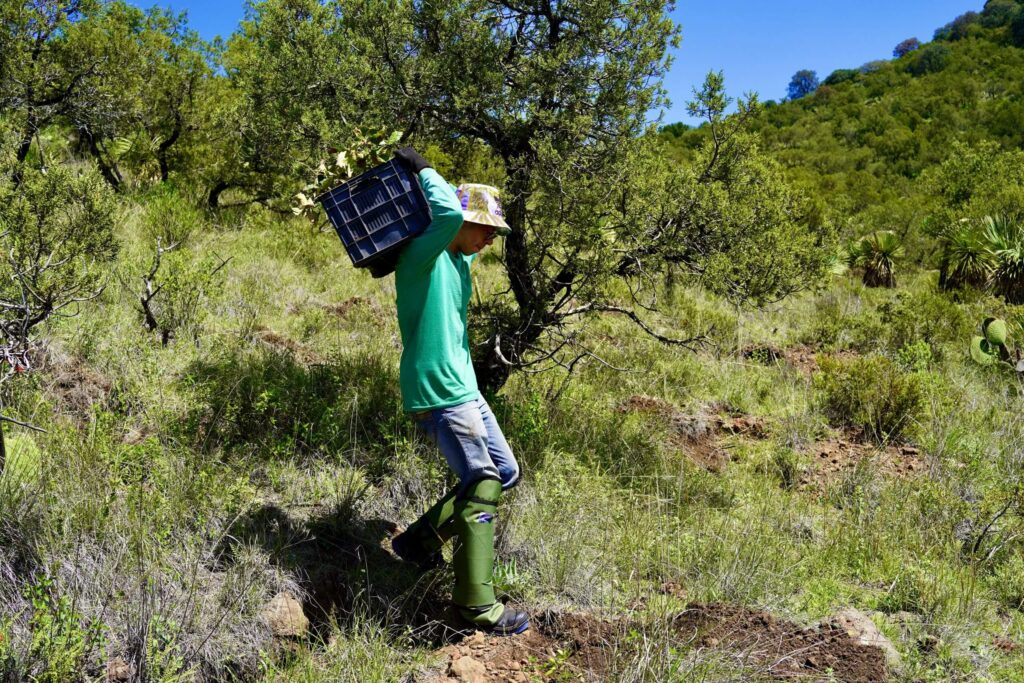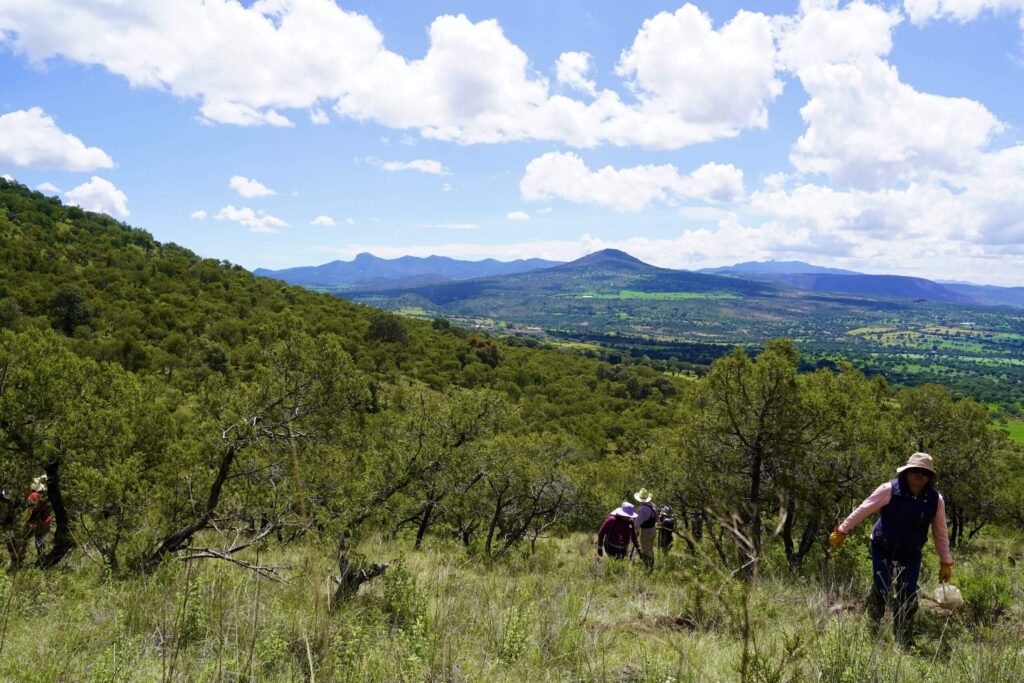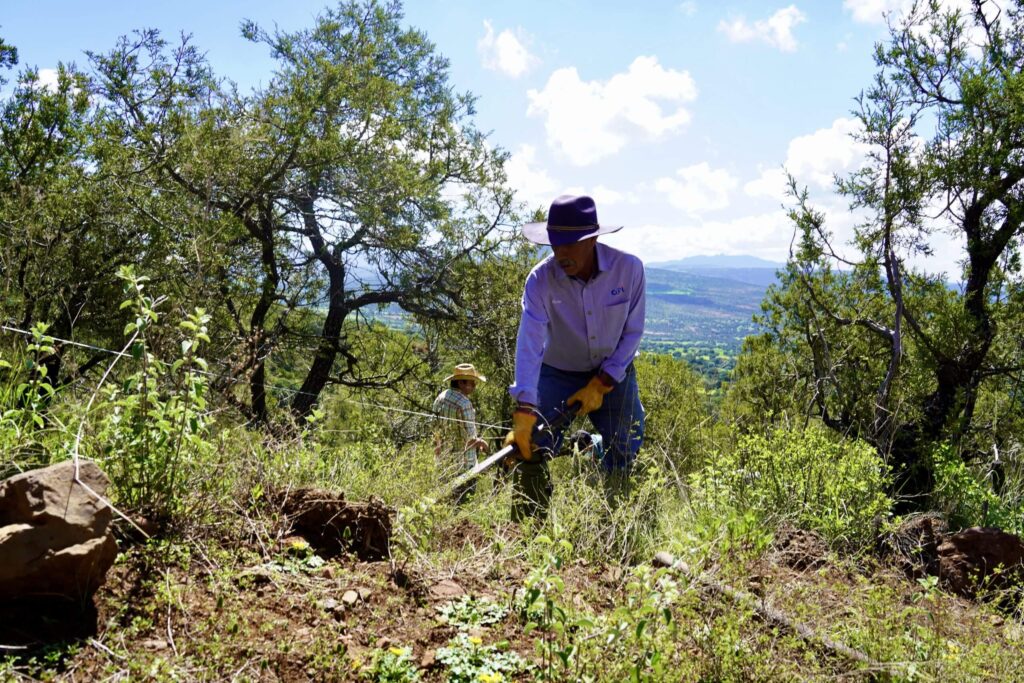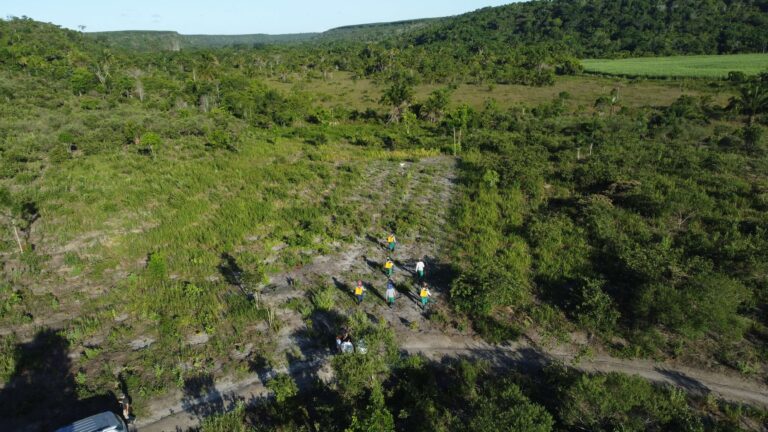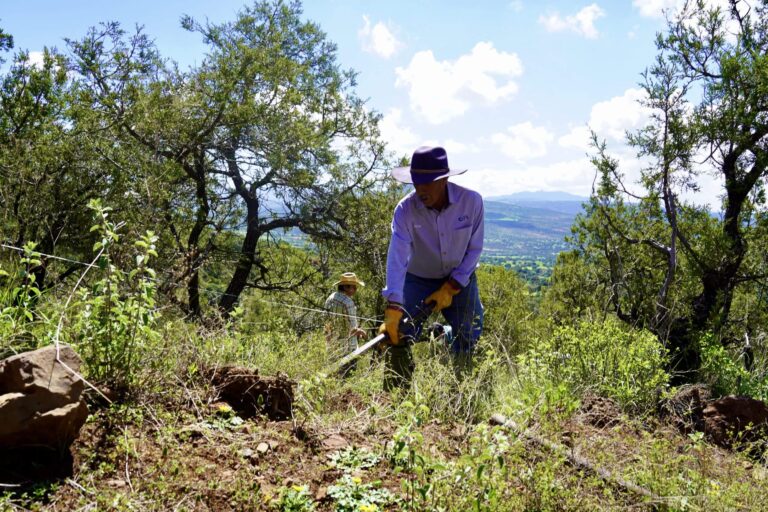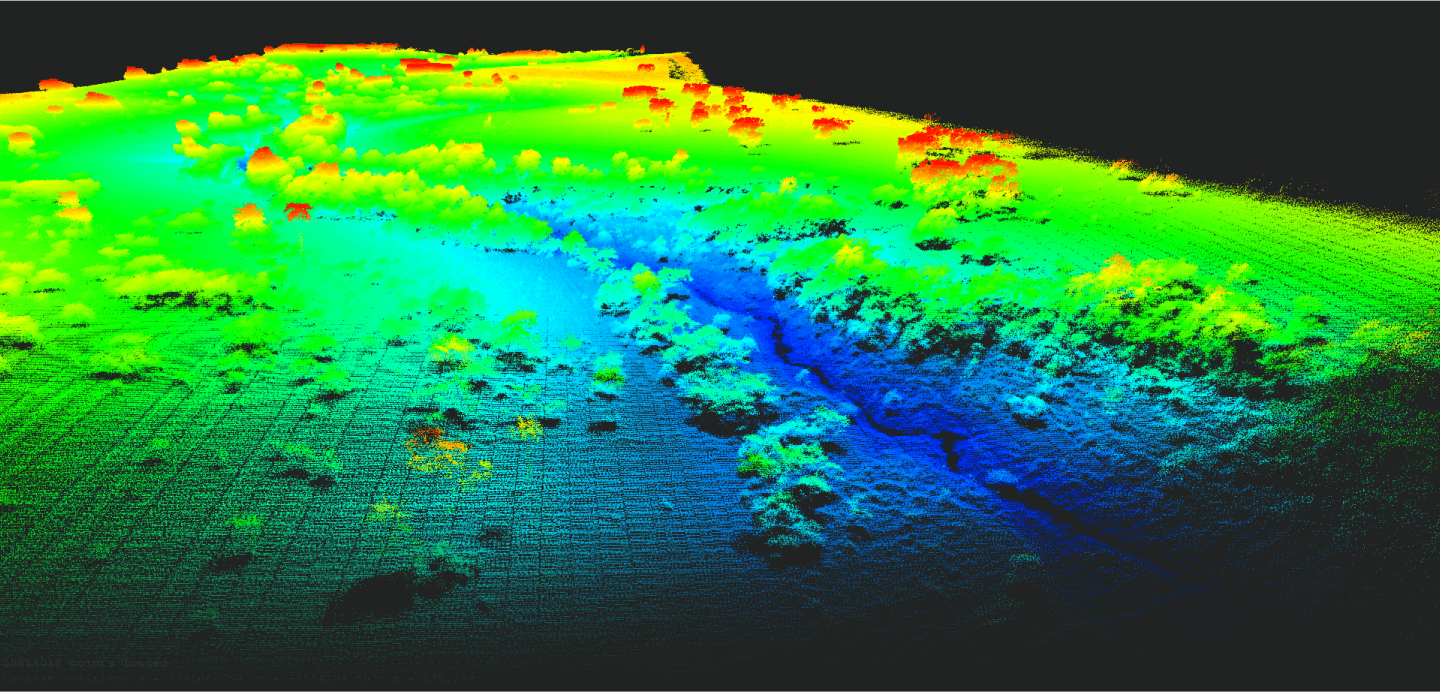Current progress
All 135 ha of active reforestation were fully planted by the end of October 2022. In June 2023, the area was surveyed to assess plant survival and any dead individuals were replaced with new seedlings. A second survival survey will be conducted in June 2024.

